Many people have asked us why we came to live in Cradock, all the way from the Big Smoke. It’s not exactly a trendy destination. It is, however, a town that is strong on agriculture, schools, artisanal skills, a measure of tourism – and social capital.
The main reason we came to live in Cradock is the people. In 2003 we stayed at one of the beautiful Victorian-era Tuishuise, met owner and restorer Sandra Antrobus and then the rest of her family. What delightful, down-to-earth, hospitable souls, we thought. They introduced us to a bunch of kind and interesting local people when we returned the next year.
One of them was a man who played the flute, violin and ukulele, restored motorbikes and made catapults which he preferred not to sell. He was also occasionally spotted wearing a Viking helmet. This lovely man was entirely at home in Cradock, and so we knew that the little river town was open for English-speaking eccentrics like us. It also didn’t hurt that property is quite affordable, the streets are pine-scented thanks to the old trees, the community is here year-round, there are couriers, and a river runs through it.
We put down an offer on a modestly priced three-bedroomed 1930s house with a fireplace, wooden floors, sash windows and a fruit-bearing garden. We sold well in Johannesburg and used most of the profits to repair our new abode and launch a small publishing firm.
Homework, homework, homework
When Johannesburg-based radio journalist David Holt-Biddle turned 60 in 2003, he and his wife Sue started to think about swopping their home in Westdene for something a little safer and quieter. They’d almost settled on a secure townhouse complex in Randburg when friends who had moved to southern KwaZulu-Natal a year before, invited them to visit. The Holt-Biddles found their friends happy and fulfilled in their new home. It was inspiring.
“We went to see their estate agent and were shown sea-view stands still available at bargain basement prices. We loved the village and the area so we did some research, came back to the coast and bought a stand in Trafalgar, where we eventually had a log home built. We sold up in Joburg and moved down exactly a year after our first exposure to the idea. Gone were thoughts of living in a gated community in Randburg.”
It was not a decision Sue and David took lightly though. “Estate agents talk of three criteria when it comes to property: location, location, location. When it comes to moving towns, three other criteria are also essential: homework, homework, homework.”
Viewed from the outside
Watch out for towns where no one likes to drink the water: litter and bad water management are often signs of deeper damage, and that trail leads right up to the front steps of the municipal offices. If you find a town where the chamber of commerce can actually sit down with the municipality and work something out for the good of all, then you’ve hit the jackpot.
The water issue is paramount. Ask the locals how municipal water is managed, and where it comes from – river, dam or borehole. How reliable is the water during drought conditions?
 Gariep, Free State: Lakeside living on South Africa’s biggest dam. Image: Chris Marais
Gariep, Free State: Lakeside living on South Africa’s biggest dam. Image: Chris Marais
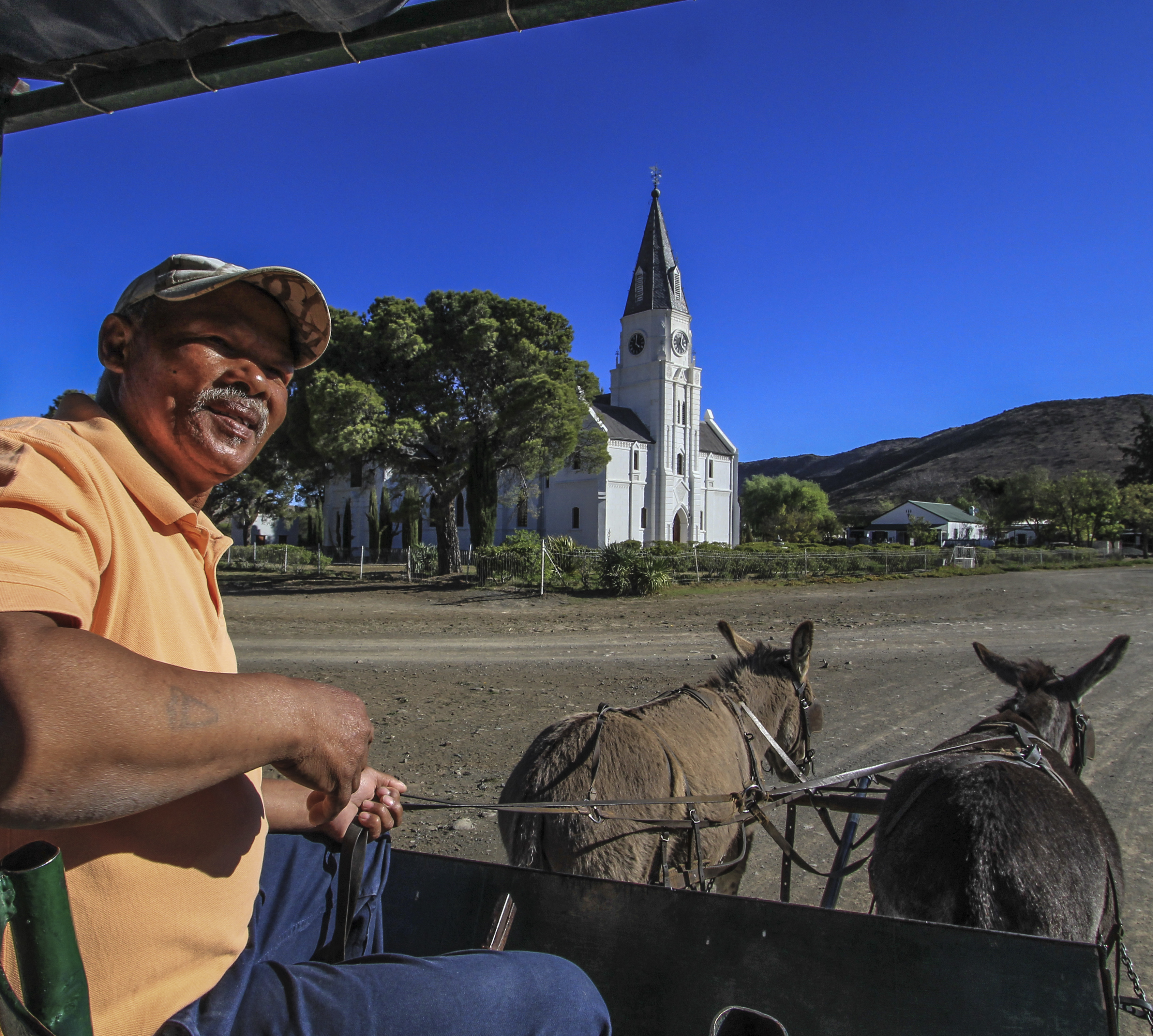 Nieu-Bethesda, Eastern Cape: The village streets are untarred because that's the way people there like them. (Photo: Chris Marais)
Nieu-Bethesda, Eastern Cape: The village streets are untarred because that's the way people there like them. (Photo: Chris Marais)
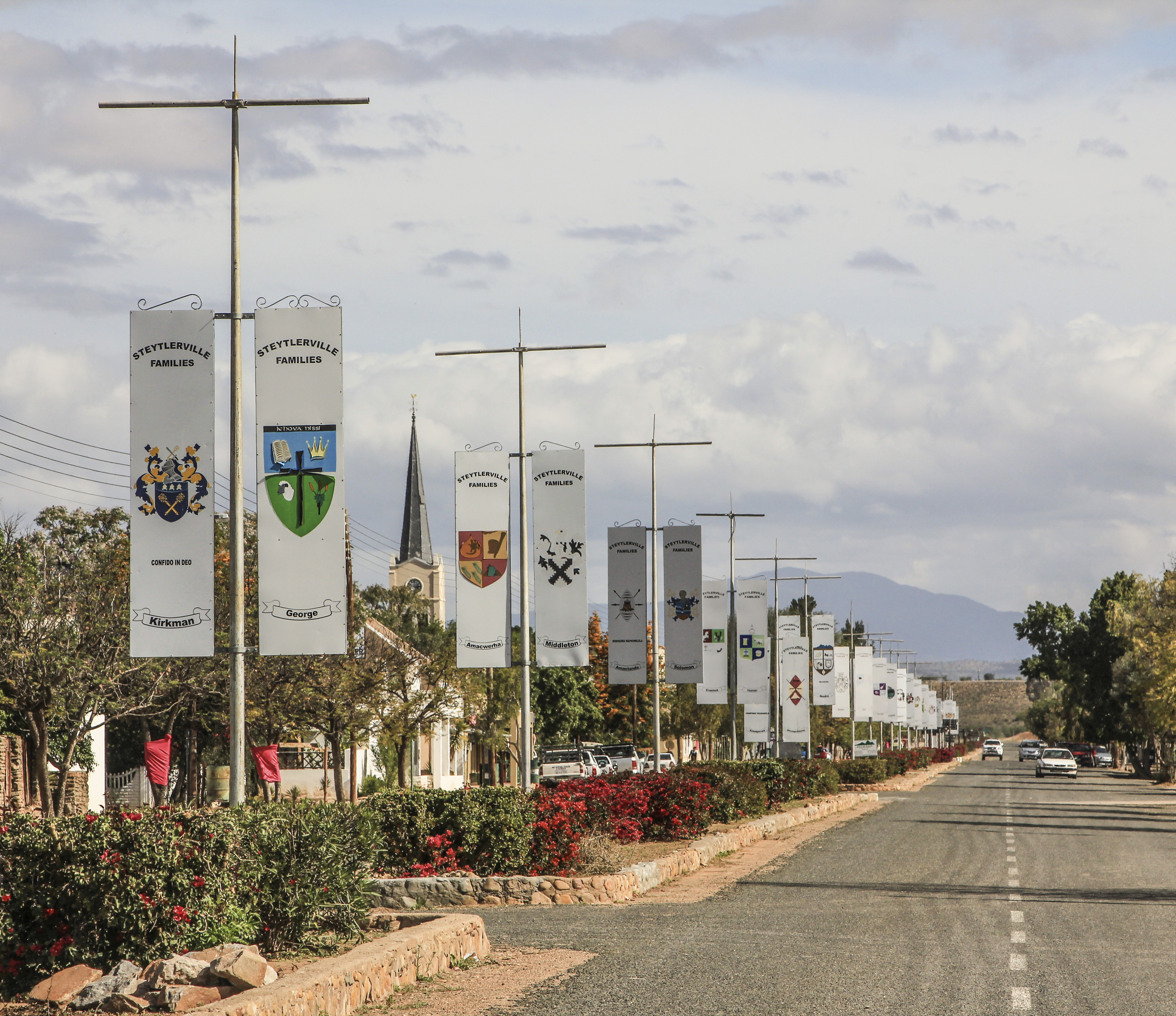 Steytlerville, Eastern Cape: a remarkable local community. Image: Chris Marais
Steytlerville, Eastern Cape: a remarkable local community. Image: Chris Marais
You can also give a town points for the way it looks after its poor and its animals. If there is a feeding scheme or a homeless shelter and if residents support their SPCA, it has promise. If there are signs of bridges between the communities, you have cause to be even more positive. This is South Africa and groups tend to live past each other – but they don’t have to.
Is there strong civil society involvement, or do the locals simply not give a damn?
Check out the hospital. Any good? Or just another depressed germ factory? Now work out exactly where you would go in a medical emergency. Find out if there’s a private ambulance service running to a big city or a good hospital in another town, and if your medical aid scheme covers it. You may find that specialists visit on a weekly or monthly basis.
What is the schooling system like? There’s nothing sadder than a deserted schoolyard – and few things more pleasant than a grandstand packed with ardent supporters at a high school rugby game in the country.
Interestingly, some communities with a substantial number of incomers have set up private schools. Homeschooling is also becoming more popular.
If your business relies on internet access, check out available bandwidth and service providers. How reliable is the electricity supply?
Speak to other newcomers to see what their experience has been like. Are there good builders or renovators? Is it easy to deal with the municipality? Step lightly around a town that relies solely on extractive mining. It has a limited future, invested in a diminishing resource. Favour a settlement with diversity and more sustainable options.
Viewed from the inside
A specific house or the main street architecture might rock your boat, but it’s all about the people living there.
Make sure you have someone to talk to, to share coffee with, to pray with, to take on projects with or to share a good book, movie or song with. You cannot live in isolation, no matter how big, flat, curved or clever your TV screen is. It helps if there’s a local champion. In the rural areas, one person can indeed make a difference. That person is normally the tourism firebrand, someone with a passion for restoring the local heritage, someone whose blood boils at the sight of litter all over the place.
Favour a town that tells its own story well. It’s normally a place with a lot of festivals, tour guides and raconteurs. Are the local cops any good? How’s the vet? Will there be a reasonable old age home for your sunset days? Are there too many golf courses sucking up too much water?
Resort towns can be charming to visit, but less so to inhabit. They are packed to capacity during holiday times, but many are hollowed out and lonely for the rest of the year.
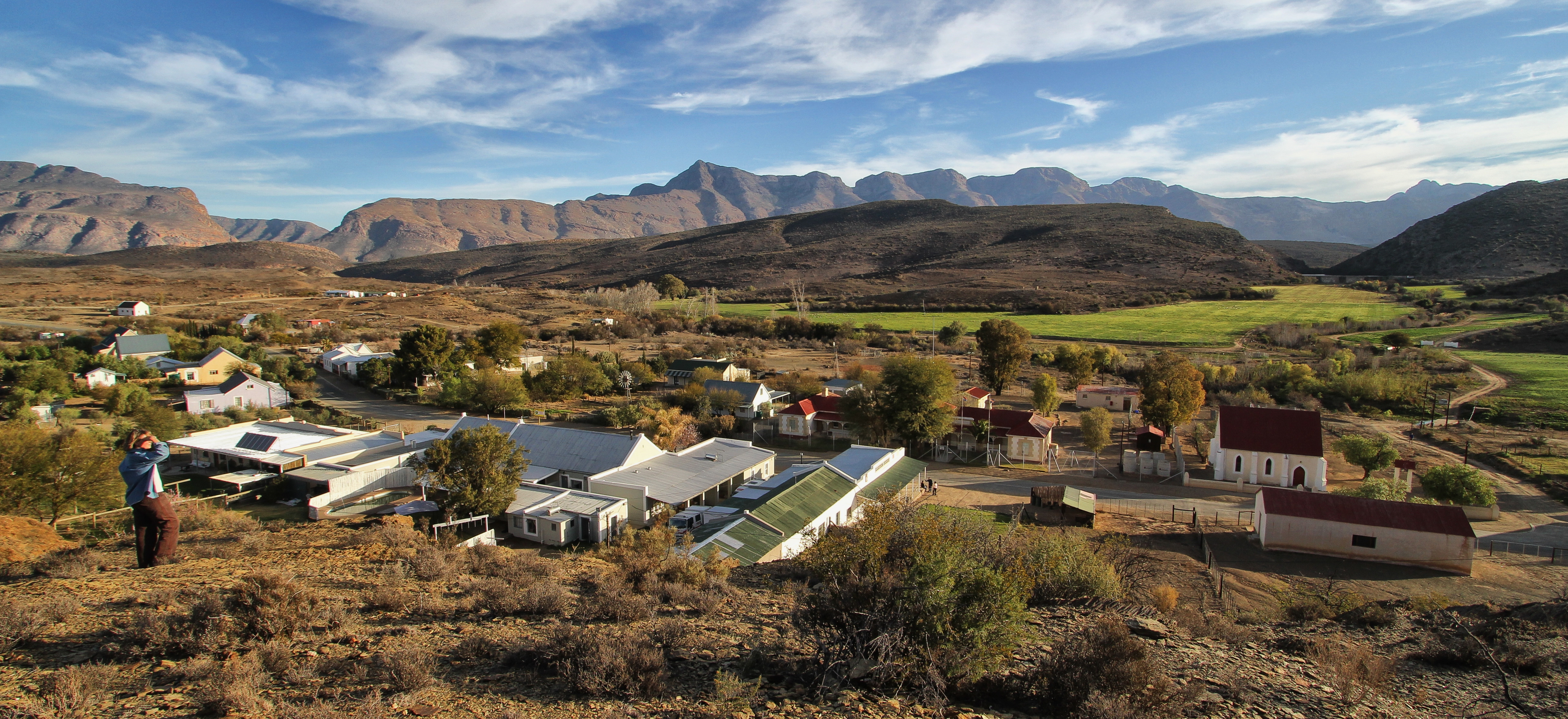 Klaarstroom, the tiny Western Cape Karoo village with the huge view. (Photo: Chris Marais)
Klaarstroom, the tiny Western Cape Karoo village with the huge view. (Photo: Chris Marais)
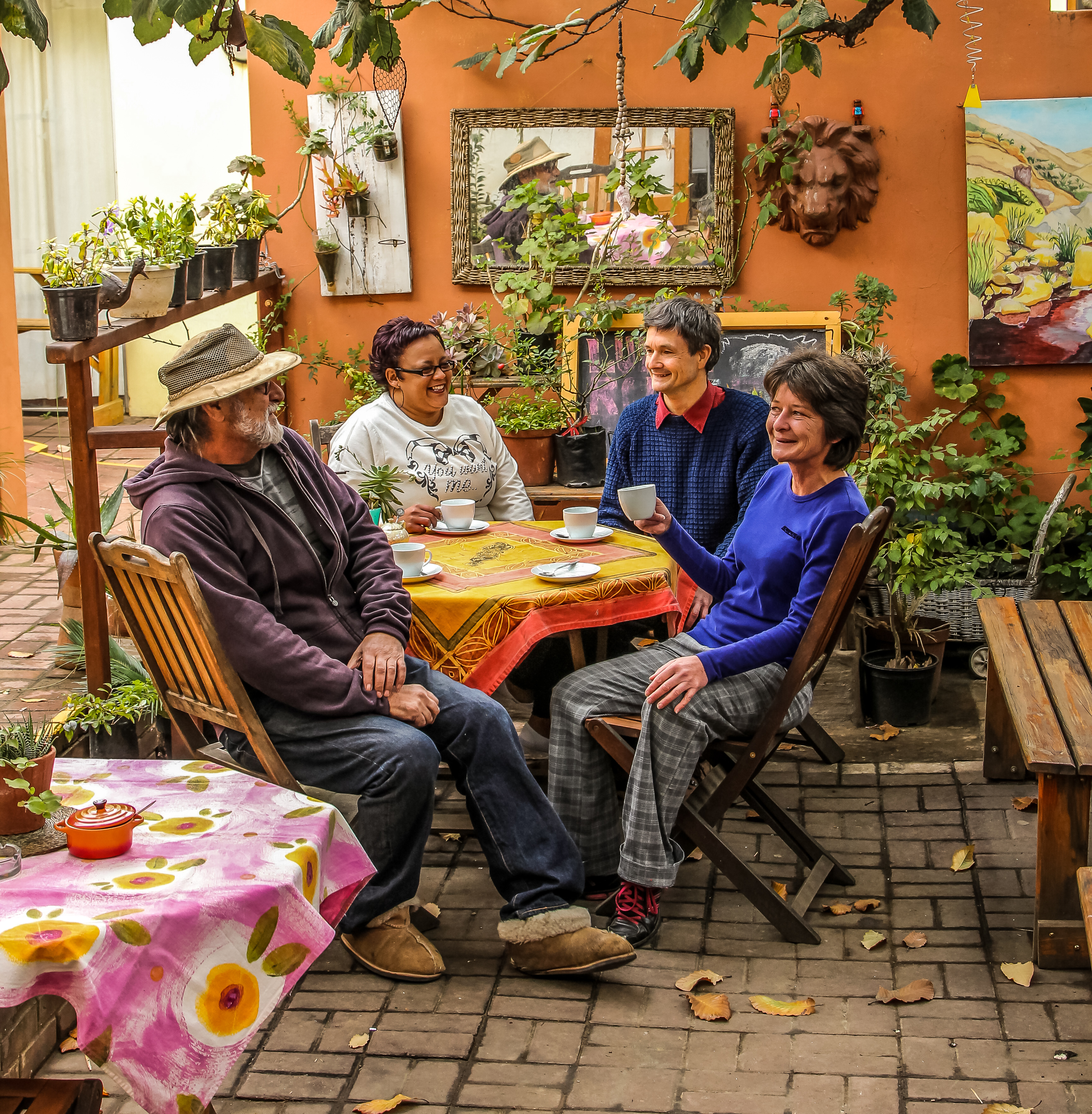 Barrydale, Western Cape: Coffee with mates at midday – priceless time spent. (Photo: Chris Marais)
Barrydale, Western Cape: Coffee with mates at midday – priceless time spent. (Photo: Chris Marais)
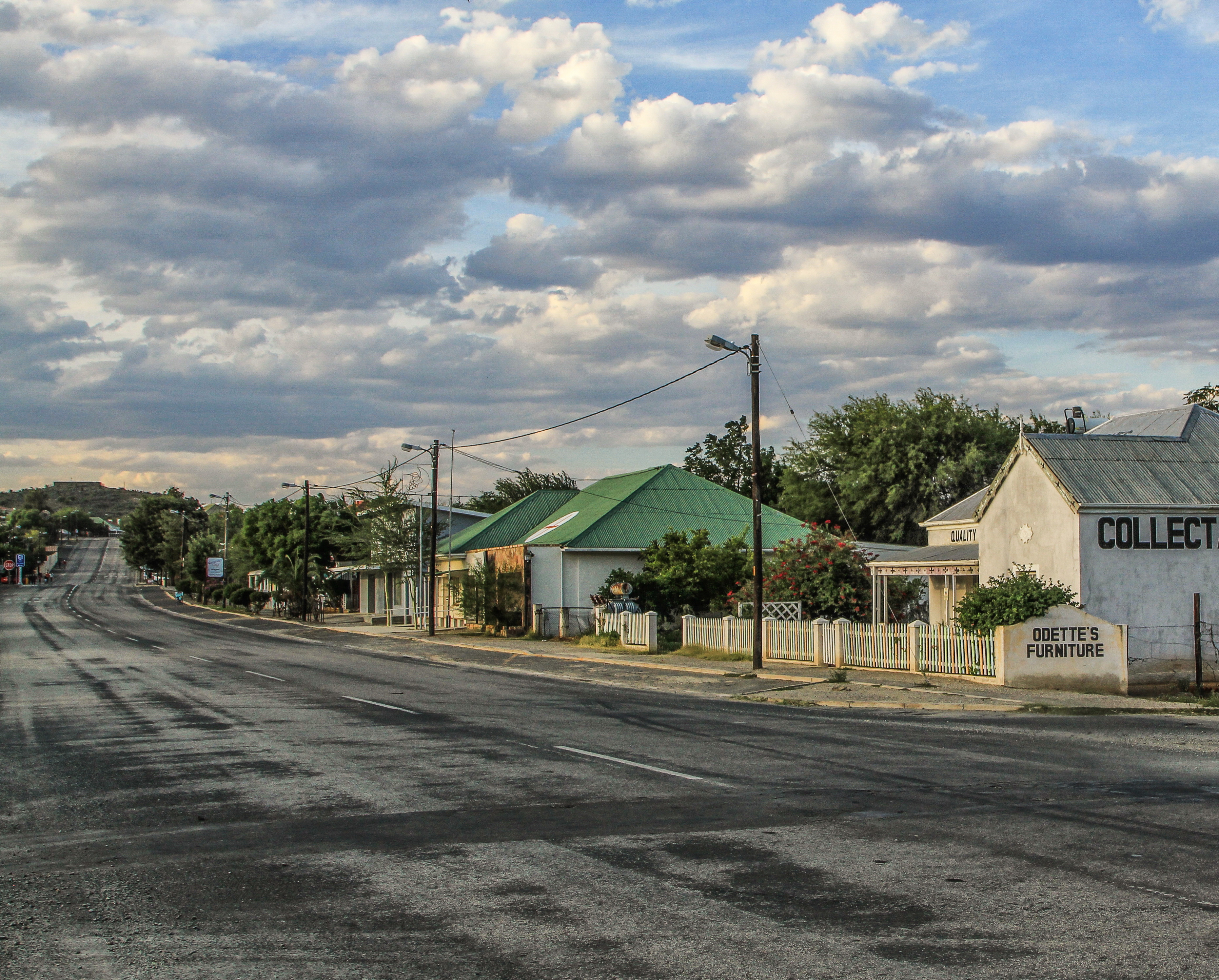 Jansenville, Eastern Cape: Rush hour in Mohair Country. (Photo: Chris Marais)
Jansenville, Eastern Cape: Rush hour in Mohair Country. (Photo: Chris Marais)
Practical considerations
A truly startling number of people make the move from a city to the platteland on a wing and a prayer, the sign of a rainbow in the sky or an owl in a tree. They leap in feet-first without doing too much investigation and, even more surprisingly, a number of them manage to find their happy place.
It is also true that fondness for the town and its people weighs hugely in its favour. And the road trips to reconnoitre your new home are vivid adventures you’ll never forget.
If you are the more methodical type, there are a few things to look out for before you sign an offer to purchase. Obviously, the local facilities and infrastructure must suit the kind of life you have in mind.
Sometime in 1972, former diplomat, travel writer and publisher Richard Proctor-Sims was driving down from Johannesburg to Cape Town in his 1100 Fiat D. Somewhere near Beaufort West, he left the N1, crossed a few farm roads and climbed out of the car.
“I suppose that’s how most people get hooked on the Karoo. I stopped, I smelled the air and I listened. I heard silence for the first time. And then I swore to myself: this is where I’ll spend my last days.”
In later years, Richard and his wife Viola headed off on a series of three-week journeys from Johannesburg into the Karoo, staying in small towns and giving them their own private star rating. Their rating system was based on “location (preferably not on but not too far from a national road), quality of access roads, amenities, size, business activity, history, age, weather, architecture, guesthouse accommodation, warmth of likely future neighbours and general ambience.”
Philippolis received the highest number of “stars” from Richard and Viola.
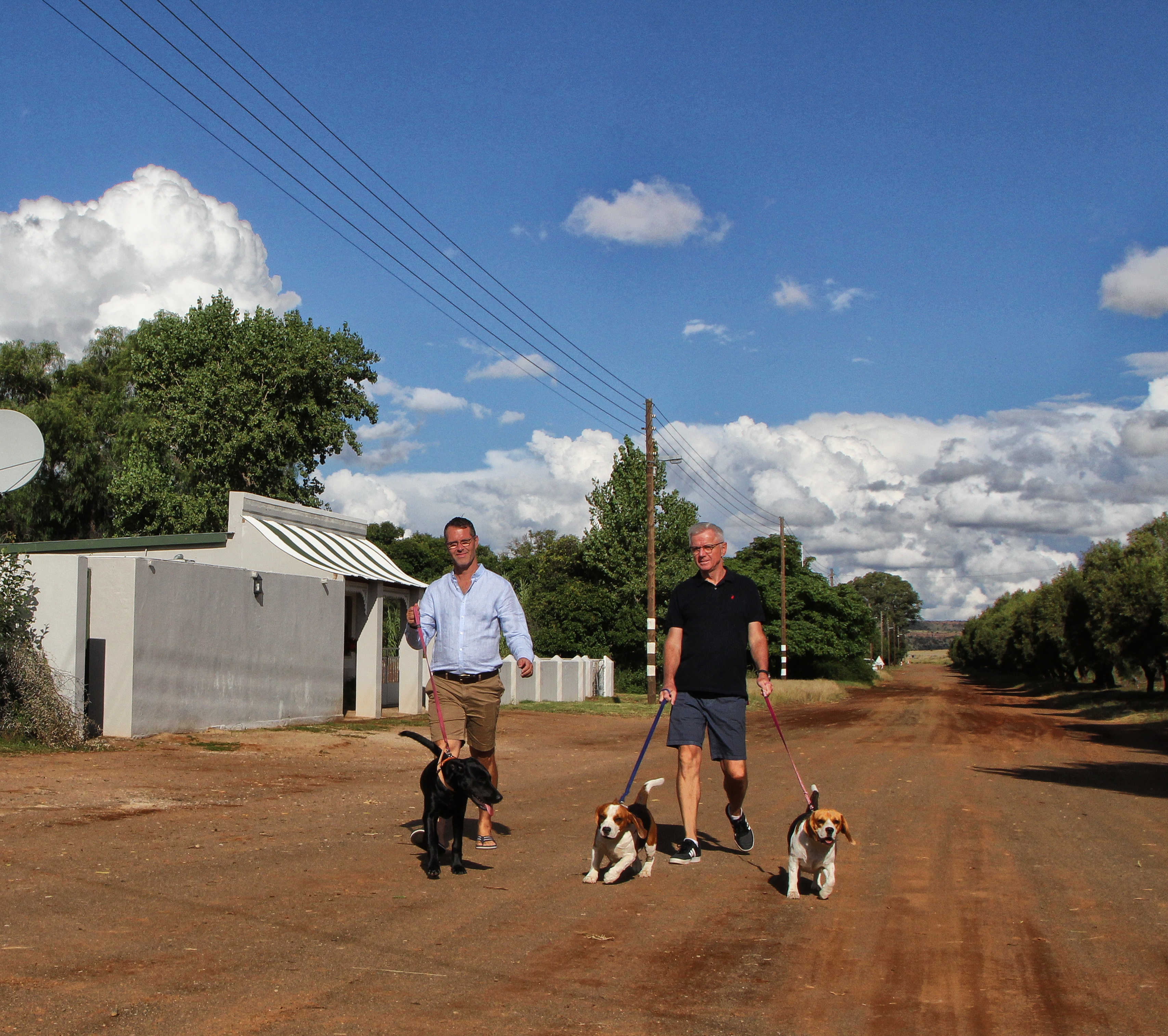 Philippolis, Free State: Never underestimate the value of being able to walk your dogs on a dirt road under open skies. (Photo: Chris Marais)
Philippolis, Free State: Never underestimate the value of being able to walk your dogs on a dirt road under open skies. (Photo: Chris Marais)
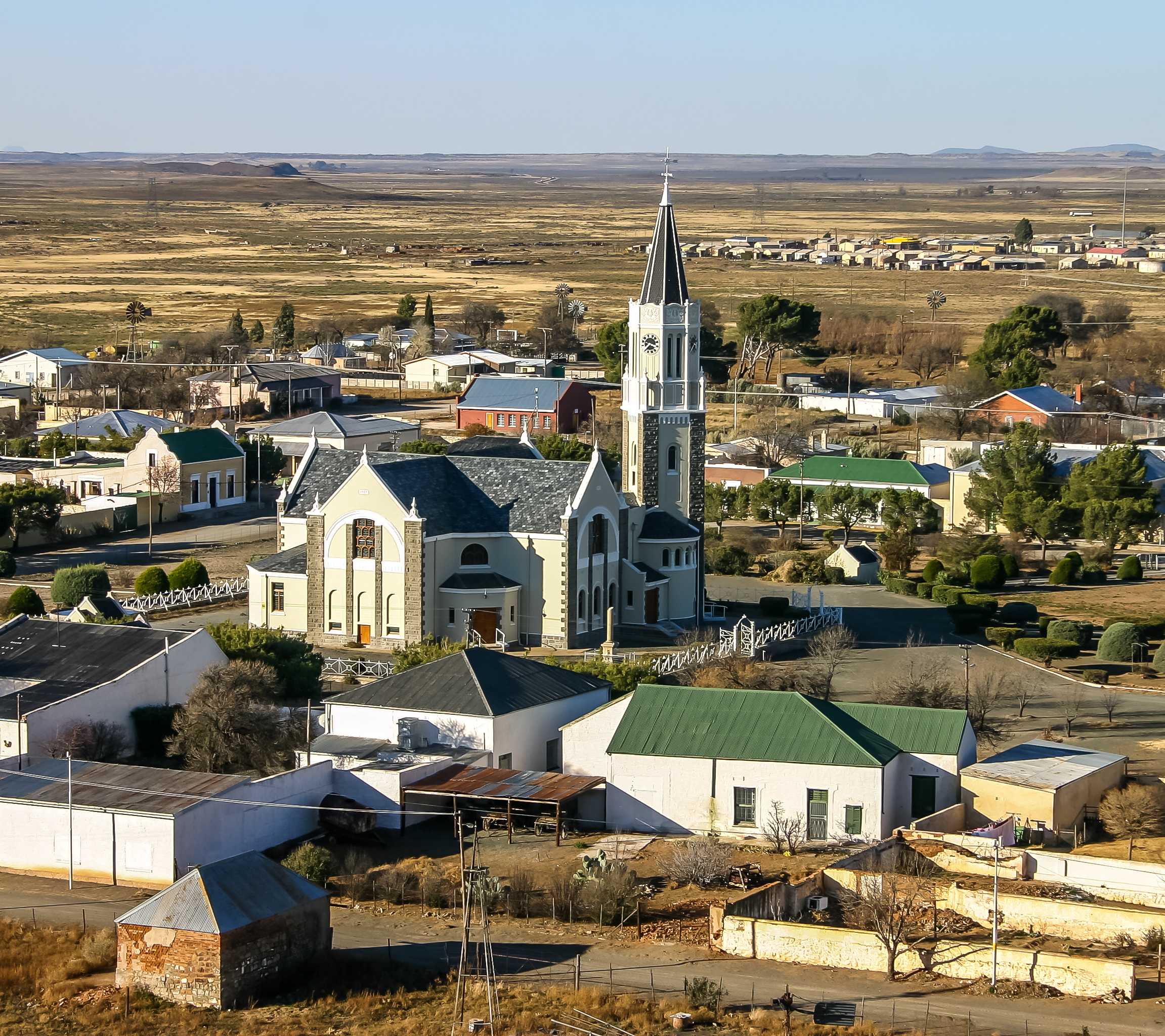 Hanover, Northern Cape: From Trappieskoppie you can see the Karoo forever. Image: Chris Marais
Hanover, Northern Cape: From Trappieskoppie you can see the Karoo forever. Image: Chris Marais
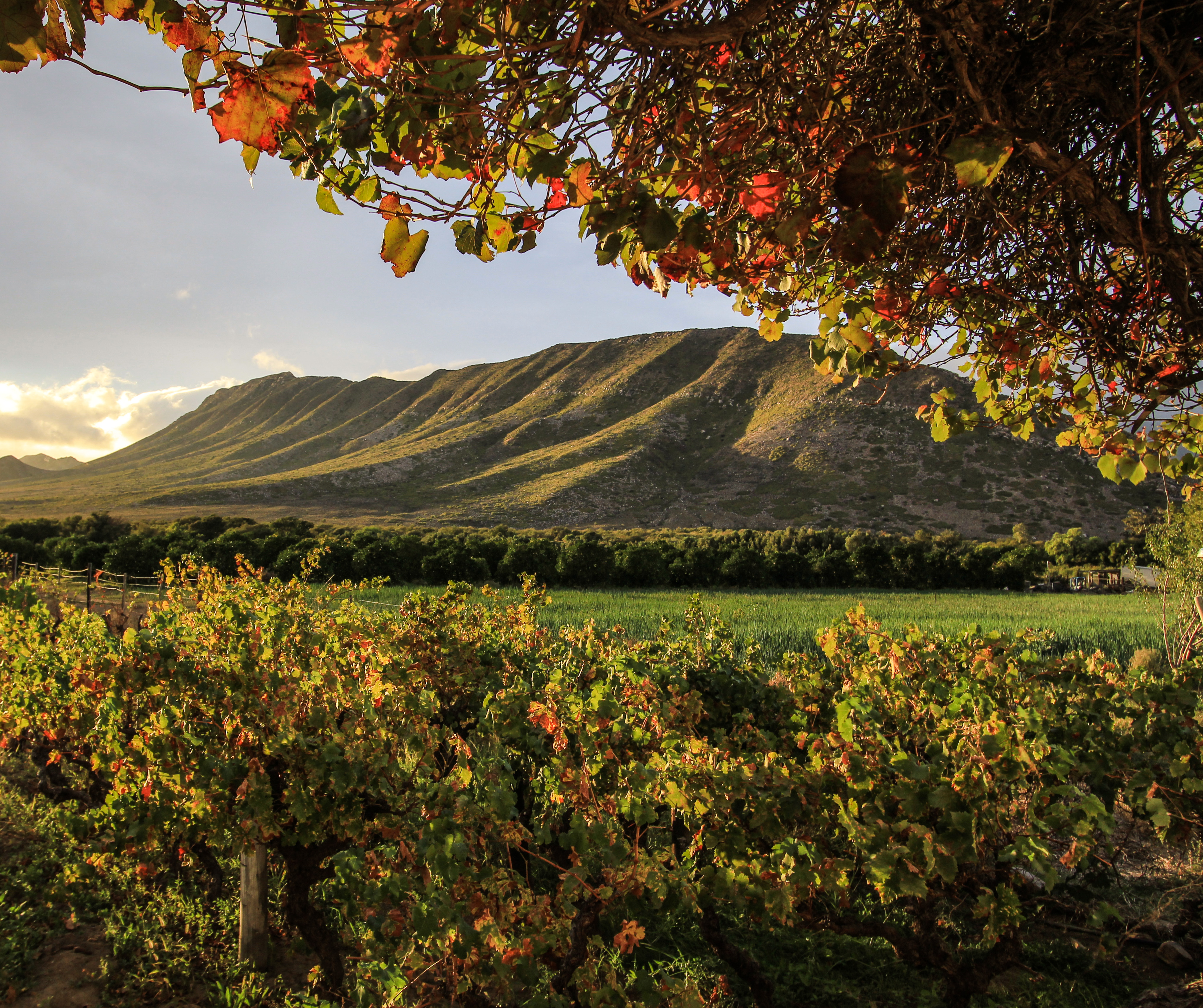 Prince Albert, Western Cape: Imagine waking up to this glorious sight every morning. (Photo: Chris Marais)
Prince Albert, Western Cape: Imagine waking up to this glorious sight every morning. (Photo: Chris Marais)
Be a realist not a romantic
As a general rule, coming to a village for a weekend with your packets of oven-ready bakes and heirloom tomatoes from Woolworths does not give you a true idea of what local life is like.
Katrin Allemann of Nieu-Bethesda agrees:
“Before you move, you should first stay there at various times of the year. Maybe rent a place and live there for a while so that if you do decide to move, you start as a realist and not a romantic.” DM
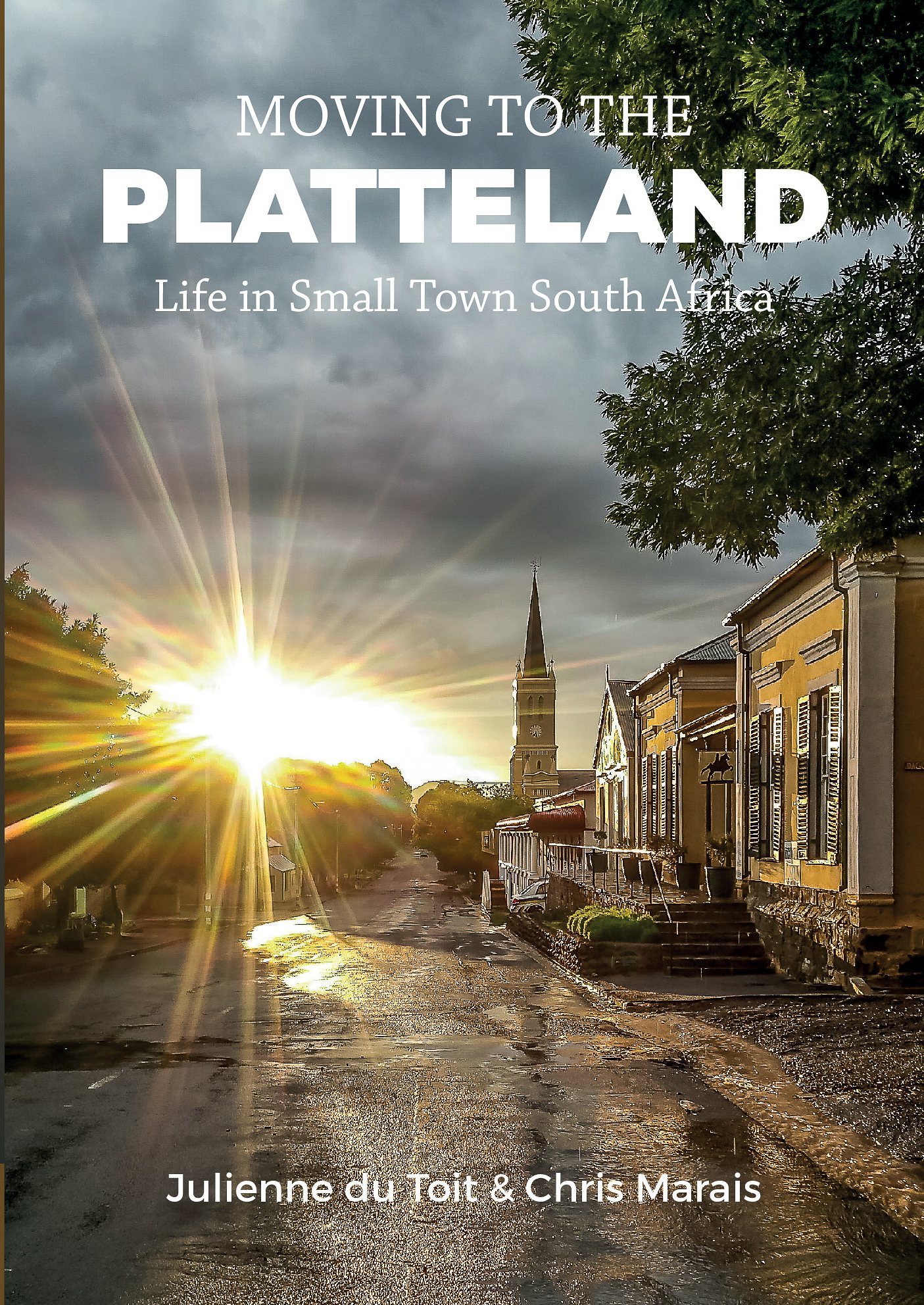 ‘Moving to the Platteland: Life in Small Town South Africa’ by Chris Marais and Julienne du Toit.
‘Moving to the Platteland: Life in Small Town South Africa’ by Chris Marais and Julienne du Toit.
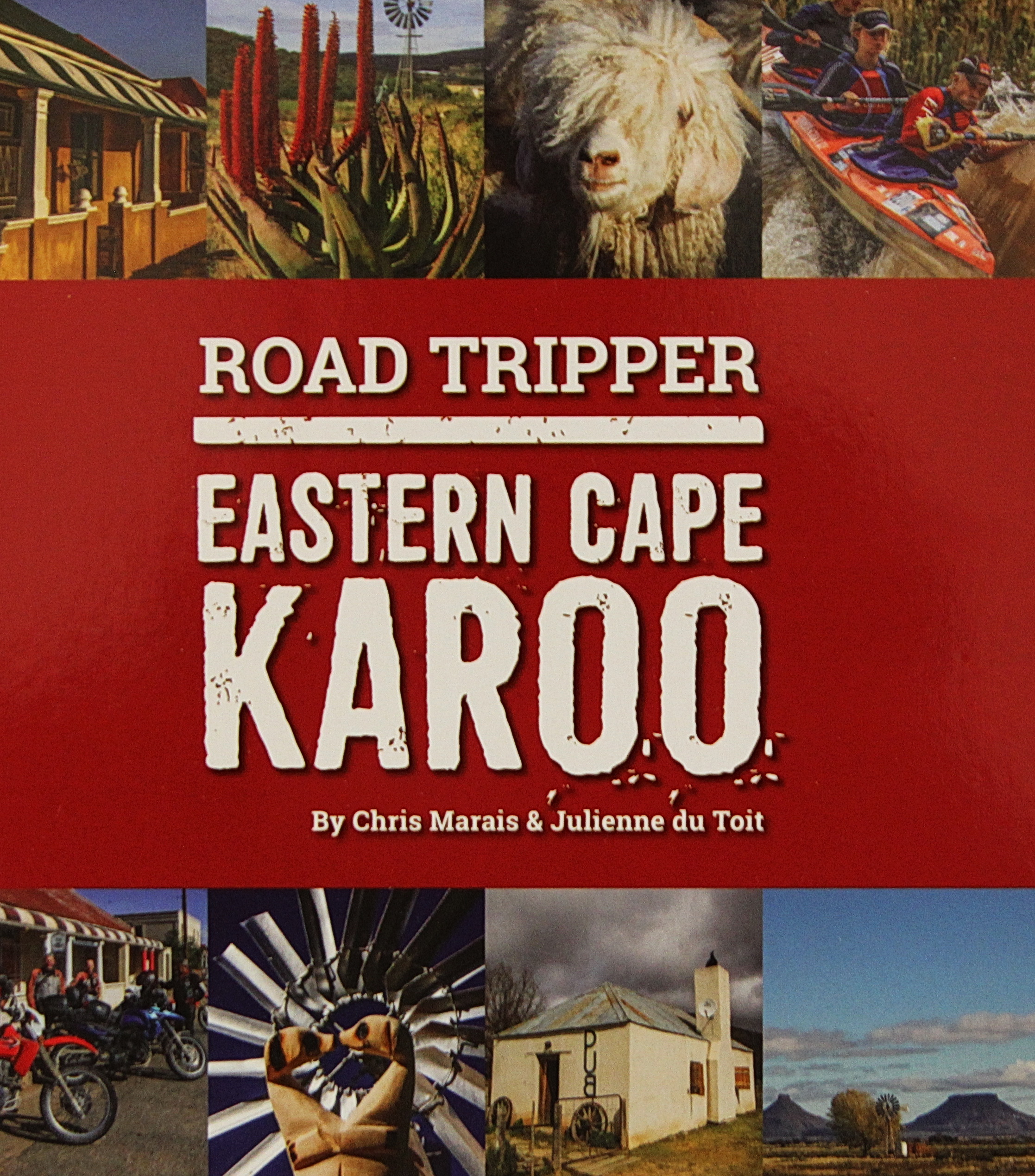 'Road Tripper: Eastern Cape Karoo' by Chris Marais and Julienne du Toit.
'Road Tripper: Eastern Cape Karoo' by Chris Marais and Julienne du Toit.
This is an excerpt from Road Tripper: Eastern Cape Karoo by Chris Marais and Julienne du Toit. The authors are offering a two-book special of Moving to the Platteland: Life in Small Town South Africa and Road Tripper: Eastern Cape Karoo for only R520, including courier costs in South Africa. For enquiries, contact Julie@karoospace.co.za.




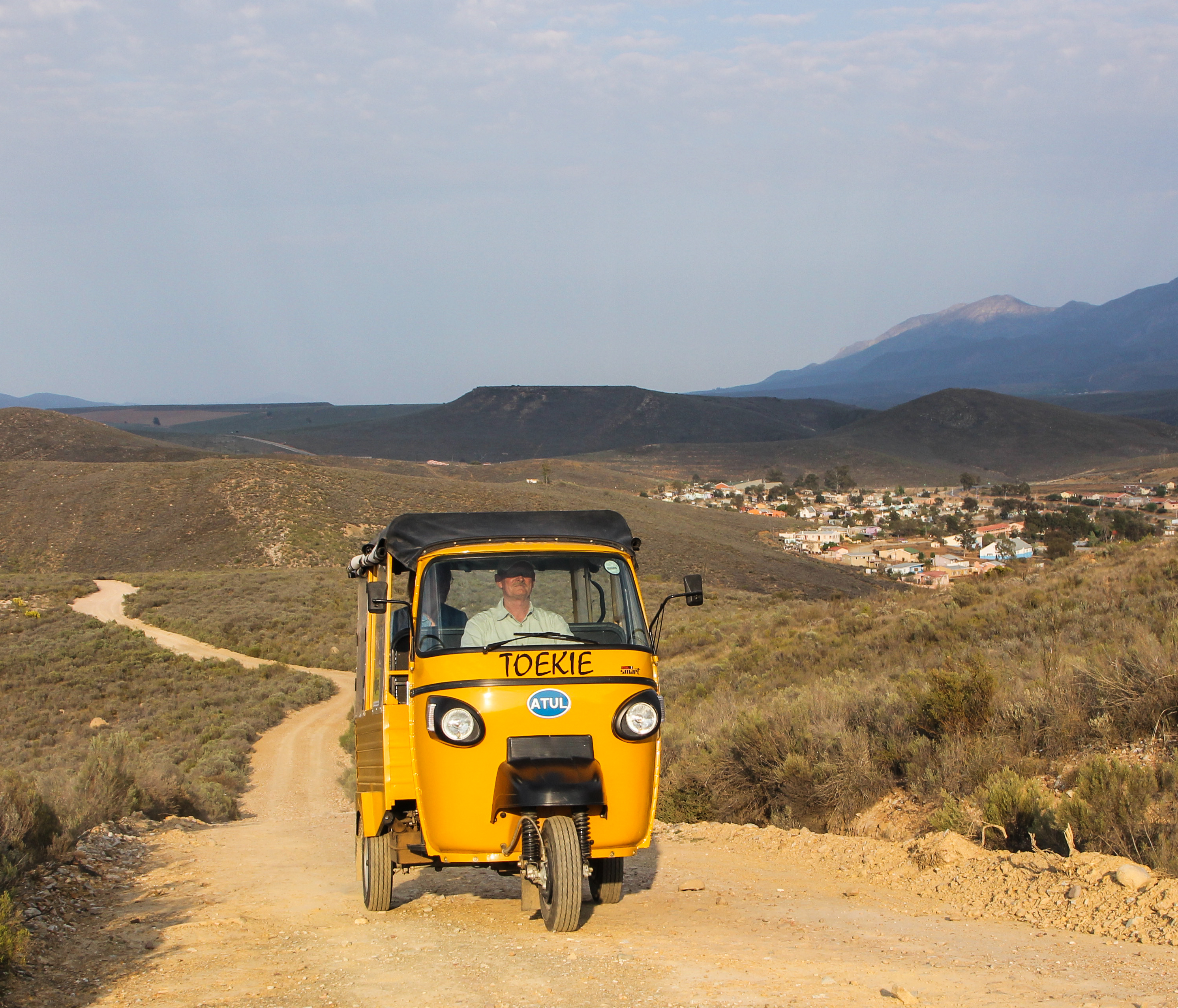 'Road Tripper: Eastern Cape Karoo' by Chris Marais and Julienne du Toit.
'Road Tripper: Eastern Cape Karoo' by Chris Marais and Julienne du Toit.